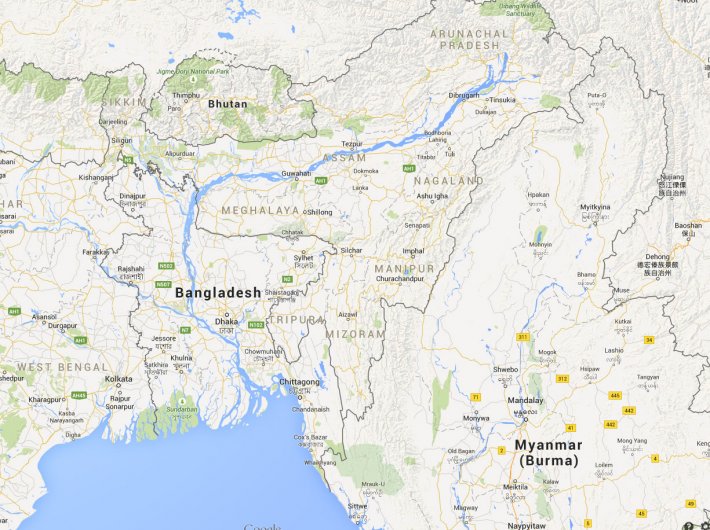Insurgents to cash in on nation’s bravado to fan sense of alienation among youth in the region
The road from Manipur’s capital Imphal to Chandel offers a picturesque view dotted by green hillocks and small ponds. The serenity turns sinister when one looks at strong presence of security forces all along the road which meanders through the hill to reach Myanmar’s doorsteps. The tranquility in Manipur and adjoining Nagaland has always been deceptive.
The killing of 18 army men by insurgents in an ambush near Chandel district and subsequent covert reprisals by the Indian state is likely to remove even this fig leaf of deception. The army operations purportedly carried out inside Myanmar border raise many an eyebrow. Was it necessary to blow the trumpet after operations of such nature without analyzing its fallout? Ask security experts who have served a long stint in the region and one will get the import of the event.
By all indications, the government in a fit of hubris seems to have bitten more than it can chew. In Manipur, the state police seems to be totally unaffected by proclaimed bravado of the government.
“We do not know what has exactly happened over there,” said a senior police officer associated with the local policing. “At least nothing is done inside Manipur,” he said. Obviously, the covert operations by defence forces are undertaken without taking local police into confidence. Yet, the local police would have known by now the extent of damage done to insurgent groups. They are clueless.
What appears to worry them is the possibility of Naga-Meitei and Kuki groups coming together to take revenge on the Indian state. Of late there have been reports of gradual integration of the region into the national mainstream. With the kind of jingoism displayed in the national media, particularly TV channels, and indulged in by ministers in the union government, insurgents would get an easy handle to fan sense of alienation among youth. And it may cause serious setback to the process of peace and unification.
Experts say that the manner in which the entire issue was handled is indicative of gross misunderstanding of the northeast problem in the government. “Some covert operation or increased presence of the military would not resolve the issue in the northeast,” they point out. In their view, the army in Myanmar is thoroughly compromised, inadequately trained and not equipped to deal with insurgents on its own. There is a strong presence of Chinese intelligence and Pakistan’s ISI which ensures that insurgents get adequate resources to keep the fire burning in the region.
What is alarming is the fact that the economy of insurgency is sustained by opium cultivation and drug trade. There have been accusations against the Myanmar army that the army Junta has been a major beneficiary of this underground economy and turning a blind eye to the nexus of insurgents-drug trade and foreign intelligence.
The disturbing facts are that in some cases, Indian security forces have also been found involved in this huge racket which has been gaining ground in the northeastern states.
It is no secret that Nagaland, Manipur and Meghalaya are worst hit by prevalence of drug-addiction among youth. There is enough evidence to prove that the drug trade in the region gets facilitated by insurgents and security forces. In the northeastern states, the young generation considered to be a demographic dividend in prime minister Narendra Modi’s words is lost to drugs. Similarly, it is no secret in Manipur and Nagaland that insurgents collect protection money and levy their own taxation on people.
The state is too soft on all these issues which are of vital importance to people’s lives in the region. These issues need to be handled firmly with a long term perspective. The chest thumping on covert operations whose outcome is still ambiguous may give false impression of macho state but will not make India a strong state. The malaise in northeast is too deep to be addressed by attempts of cosmetic perception management.

